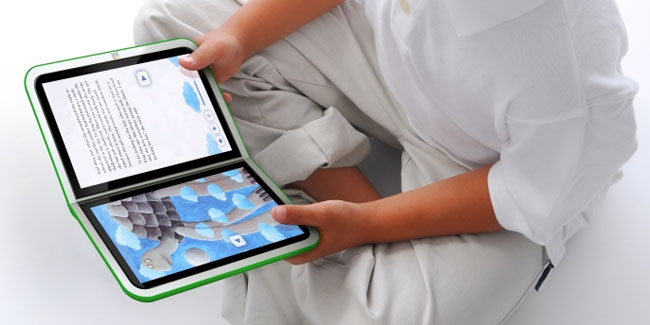"Over the next 10 years, eBooks are likely to change dramatically. Their capabilities have already started to blend with MP3 players, and will blend with video players next year when the Apple tablet launches (assuming Steve Jobs gives the product its final blessing). But what does the future hold?
Initial reviews of the Barnes & Noble Nook showcase promise, but also hint at a first-gen product that should likely be avoided by most. The full details and verified existence of the Apple tablet have been held off until March or April. And the Sony eBook reader is still crippled by its store. The near-term future remains the Amazon Kindle 2.
The Future of eBooks: Flexible Screens and Beyond
- By: Rob Enderle • December 15, 2009
 |
| Folding ebook |
"We are also watching more things on services like YouTube or Hulu, and listening to music off of a variety of music streaming sources like Slacker (my personal favorite). Apple will, if rumors are true, be the first to explore this breadth fully with its tablet. But the technology needed to do this right is at least three to five years out. If you use an LCD screen, battery life and readability are sacrificed. If you use e-Ink, multimedia is limited to low frame rate video and music. In addition, multimedia consumes a lot of bandwidth, and what makes the initial eBooks so affordable is that that books use very little.
There is a blended ePaper LCD screen coming next year, and at an analyst meeting last week, consensus was it is three years from making it into high volume products. In addition, 4G wireless (LTE and WiMax) is expected to be widely available by 2013, which gives us the potential for that perfect storm: an affordable blended device.
No comments:
Post a Comment